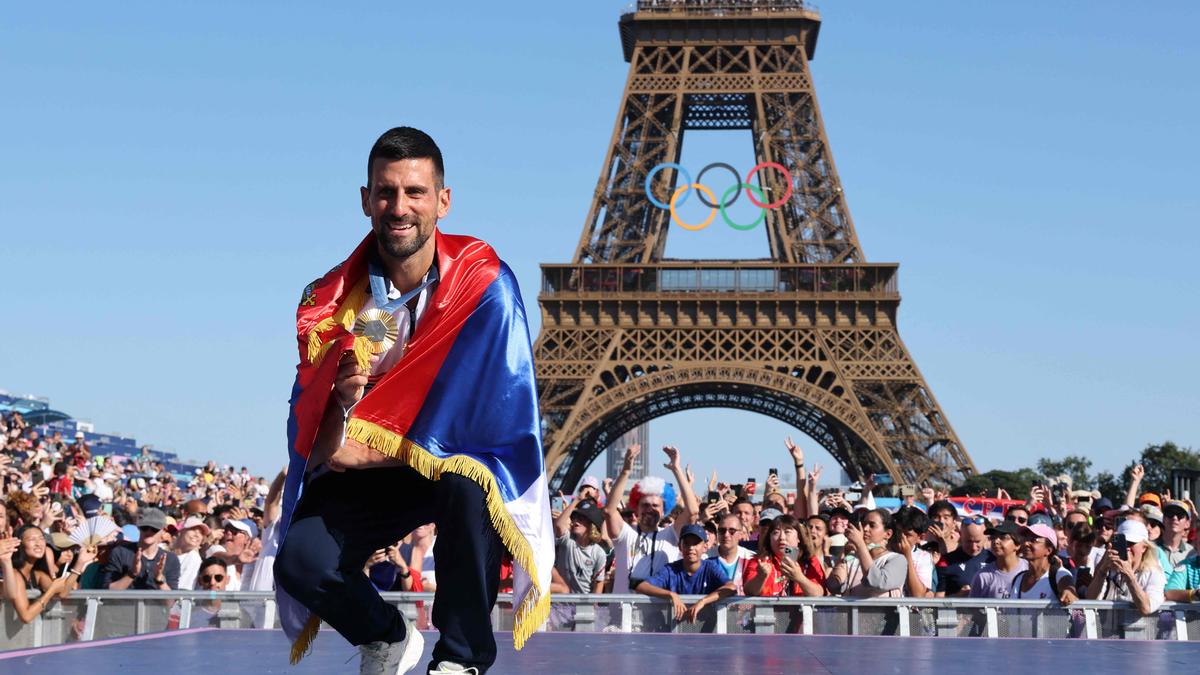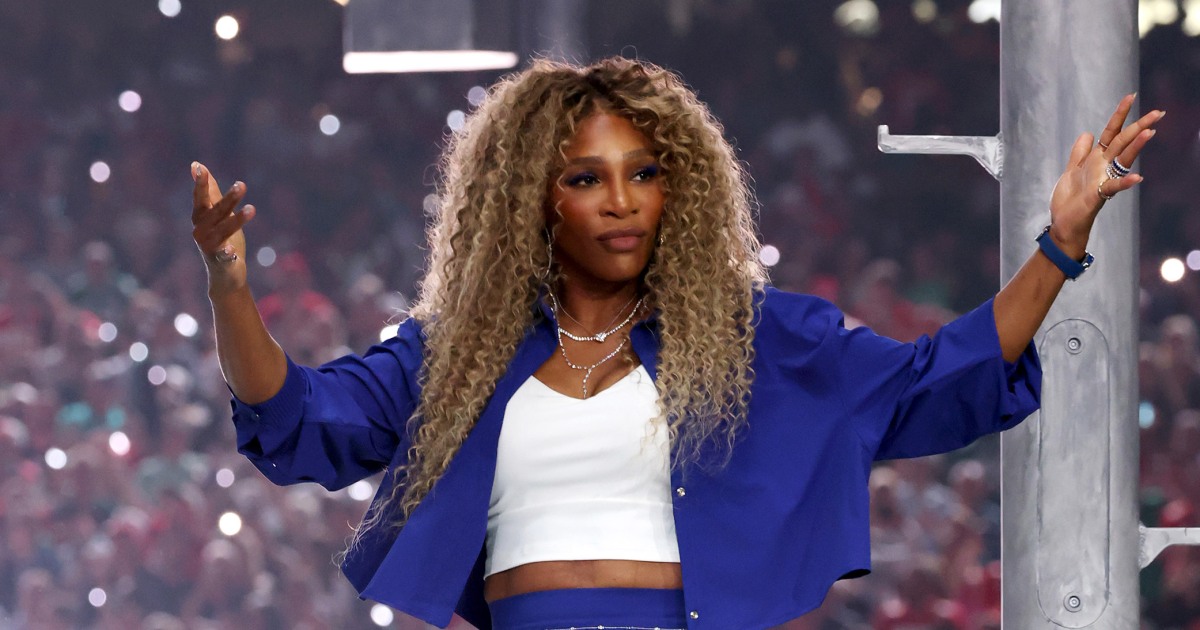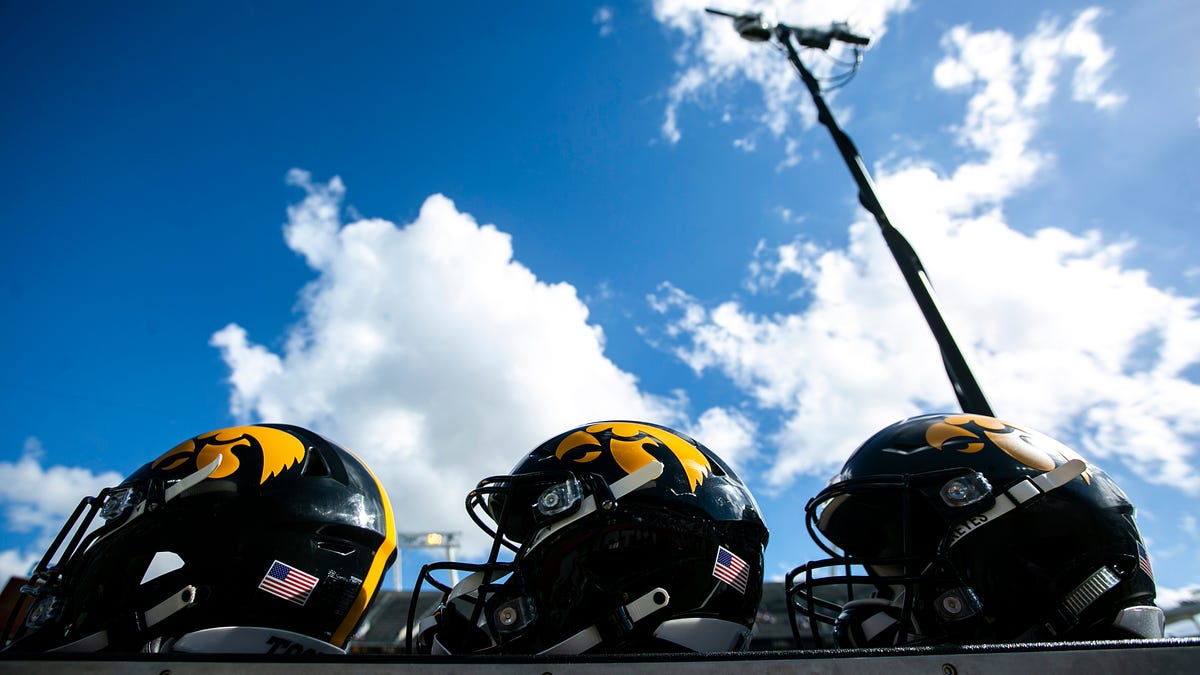August 4 may have seemed to be an ordinary Parisian Sunday filled with laze and relaxation. It was anything but that in the world of tennis as Novak Djokovic cemented his status as the most prolific player in the Open Era.
The man, donning primarily red, fell to the hallowed red dirt of Court Philippe-Chatrier. Djokovic could not hold back his tears because he knew this was it. Nothing came close to how much the 99th title of his career meant. He had, at last, overcome his longest-standing hurdle.
Victory at the Summer Games — it was no more a distant dream, it was now a very real result of the endless work he had put in and one that he will undoubtedly hold closest to his heart.
Maybe it had to do with the mythical nature of the Olympiad. Maybe it had to do with conquering the unconquered in his fifth attempt. Or maybe, it had something to do with proving to the world, and himself to some degree, that he was not an outsider. That is what he had craved all along — not the never-ending stream of titles, not the 185 million USD in prize money, but acceptance. That Novak Djokovic is also a name that belongs in the same conversation as Roger Federer and Rafael Nadal.
He was always considered the ‘third party’ among the Big Three.
Before his entry, the existing rivalry at the forefront of men’s tennis between the Swiss Federer and Spaniard Nadal was ideal from an audience’s point of view.
Nadal’s gritty warrior-like nature was the exact antithesis of Federer’s graceful poise. It was the perfect clash of ideologies.
They went hand-in-glove with each other. It was the perfect pairing. And then, out of nowhere, came this boisterous Serbian talent, who turned pro at 15. Djokovic disrupted the fairytale storyline.
But none of that matters anymore.
The Serb had conquered his final peak and fittingly sealed his career Golden Slam with an Olympic gold, becoming only the fifth player to do so after Steffi Graff, Andre Agassi, Serena Williams and Nadal.
In his quest to etch his name in the tennis books as one of the greatest to ever do it, Djokovic has gone above and beyond and obliterated any room there may have been for debate.
With 99 titles, 24 Majors (10 Australian Open, three Roland-Garros, seven Wimbledon and four US Open), the elusive Olympic Gold, 1116 singles victories, and a win rate of 83.5%, Novak Djokovic has single-handedly put an end to a conversation spanning decades and has proved himself to be the best player to ever pick up a tennis racquet.
The final piece of the puzzle
Paris 2024 would mark Djokovic’s fifth attempt at taking home the gold at the Summer Games, an uncharacteristically long wait for someone so used to winning everything he contests.
The closest the Serb had come before this was on his debut in Beijing 2008 when he came third after losing to nemesis Nadal before beating American James Blake in the bronze-medal match.
Djokovic began the 2012 season by winning his third Australian Open title after beating Nadal in the longest Grand Slam final in Open Era history, a true display of the Serb’s grit and perseverance.
He reached the semifinals of the Olympics again but lost to the eventual champion, Andy Murray, and succumbed to Juan Martin del Potro in the bronze-medal encounter in London.
Rio 2016 and the pandemic-hit Tokyo Games produced similar disappointments when Djokovic crashed out in the first round to Del Potro in Brazil and lost the bronze-medal match to Pablo Carreno Busta in 2021.
The 10-time Australian Open winner began this year with a first loss in Melbourne since 2018, his only semifinal exit at the Rod Laver Arena, to Jannik Sinner.
At the Geneva Open, he claimed his 1100th win on his 37th birthday, becoming only the third Open player to do so after Jimmy Connors and rival Federer.
At French Open, he was forced to relinquish his crown and withdraw from the tournament due to a tear in his medial meniscus in the right knee.
Djokovic would then undergo surgery and return in time for the All-England Championships. He battled his way to the summit clash where he faced, yet another Spaniard, defending champion, Carlos Alcaraz.
Alcaraz coasted to a successful Wimbledon title defence as he humbled Djokovic by beating him in straight sets — 6-2, 6-2, 7-6(4).
The wunderkind, touted to be Nadal’s next-in-line, seemed to have all the answers to the Serb’s hopeful prods. Alcaraz managed to force 25 unforced errors out of the otherwise immaculate Djokovic on his way to the crown.
Tennis at the Paris Olympics brought with it a whole new spectrum of nuances. After eight days of scintillating action, the Men’s singles finals beckoned.
Djokovic at last, or Alcaraz for the first time?
The Serb started strongly by winning the first game and Alcaraz returned the favour. The first real test for the 24-time Grand Slam winner came in the ninth game when Djokovic displayed his mettle as he saved not one, not two, but five break points to hold his serve and lead 5-4!
With both players holding their serve, the opening set of the gold medal match went into a tiebreak.
With Alcaraz down three set points, the Spaniard hit a cross-court forehand which Djokovic ever so deftly returned to take home the first set.
Standing tall
There he stood tall – clad in the red, blue and white of his homeland, on the red dirt of Court Philippe-Chatrier – as he thrust his arm in the air and held his pose. The perfect silhouette — the white cap, his piercing cheekbones, fist closed, the Lacoste wristband, even the sweat dripping down his forearm frozen in that moment.
The Serbian tennis titan resembled the steely resolve of a God emerging from Olympus. The ground quaking, almost like it was preparing for the inevitable. He was getting closer and you could smell the hunger, instilling in you a deathly fear.
The second set embarked in a similar fashion. One equal to the other, each holding his own in a demonstration of technique, grit, and discipline. Soon enough, the second set headed to a tiebreak as well.
Djokovic claimed the opening point with a monster forehand. The usually composed Alcaraz turned feral. The frustration was taking over. He did well to level the score at 2-2. The Serb would go on to win the next four.
With four gold medal points, Novak Djokovic was on the receiving end of the serve. He was seconds away from the end.
Alcaraz’s serve down the middle, Djokovic’s return to the baseline, a below-par backhand to Djokovic, and a venomous forehand down the line later, it was over.
The 2024 Olympic gold medallist let out an extended grunt as he hit that last shot. He had done it.
Serbia’s Novak Djokovic reacts after defeating Spain’s Carlos Alcaraz in the men’s singles tennis final at the Roland Garros Stadium during the 2024 Summer Olympics, Sunday, Aug. 4, 2024, in Paris, France.
| Photo Credit:
AP
The 37-year-old from Serbia turned to the crowd as he broke down. The man who had conquered tennis, on all fours, bawling like a baby. His thumb finger twitching amidst the incessant crying, Novak Djokovic’s body was exorcising his demons of present and past. There was nothing left to do.
The Gods of the sport had deemed him worthy. It was time. As he was awarded the gold medal at the Paris Olympics 2024, Djokovic transcended tennis and assumed his throne, arguably at the centre, on the Mount Olympus of tennis.














